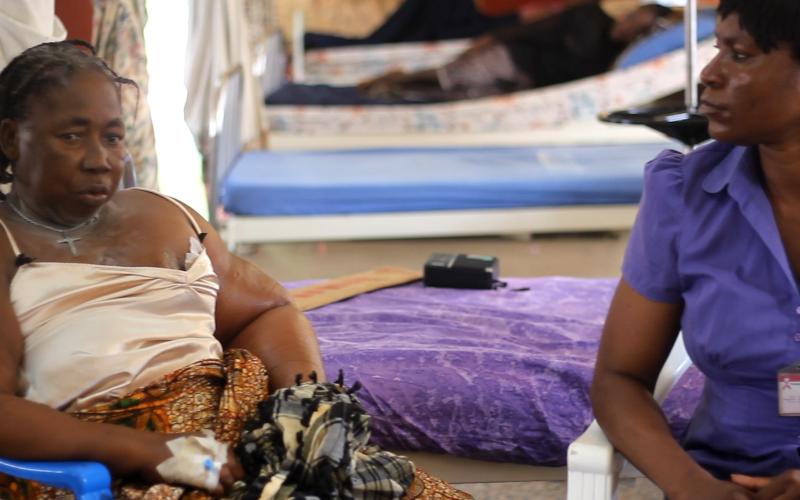
Living in a fast-food-filled Western society, diabetes isn’t necessarily a condition that one would immediately correlate with African nations. Surprisingly, diabetes is “on the rise everywhere and now most common in developing countries” according to Dr. Margaret Chan of the World Health Organization (WHO).[1] Although Type 2 diabetes can be caused by “unhealthy eating and lack of physical activity,”[1] it is a condition more broadly rooted in malnutrition, an issue far too familiar in African nations like The Gambia.
The symptoms, side-effects and impacts of diabetes affect millions of people across the planet. “Heart attacks, strokes, kidney failure, blindness, and foot ulcers” are just a few of the many debilitating repercussions of the disease.[1] In the Gambia, 6.5% of men and 5.2% of women are diagnosed with diabetes, and 2% of the total deaths in the nation are due to the disease. [2]
Diabetes must be actively addressed and targeted from a variety of directions and standpoints; mainly treatment and prevention. Diabetes is a disease that can be maintained, allowing people to live a normal and healthy life, but it must be caught early, treated quickly, and strictly maintained.
Citizens of nations like The Gambia need easy access to affordable medical treatment and resources. These resources will not come out of thin air, as the World Health Organization has acknowledged [3], and specific legislation and targeted actions are being put into place to spread access to these resources to as many developing nations as possible. In The Gambia, no such policies or guidelines currently exist.
Equally as important as prevention and treatment, education must be a priority in order to effectively combat the spread of this disease. Healthy eating habits, daily activity and overall personal health measures are simple changes in one’s day-to-day routine that can hugely reduce the risk of type 2 diabetes.
The World Health Organization made an attempt to draw attention to the diabetes issue in developing nations this year at its birthday celebration, World Health Day, on April 7th, 2016 by serving fruit rather than a birthday cake. Many governments, along with WHO, aim to halt increasing cases of diabetes by 2025. Their recent efforts, which are highlighted in their press release “World Health Day 2016: Let’s beat diabetes” on World Health Day, are significant steps in the right direction.
You can help provide healthcare supplies and medical support in The Gambia and other developing Africa countries. Tell us how you want us to use your donation.
Sources:
[1] http://www.who.int/mediacentre/commentaries/diabetes/en/
[2] http://www.who.int/diabetes/country-profiles/gmb_en.pdf?ua=1
[3] http://apps.who.int/iris/bitstream/10665/204871/1/9789241565257_eng.pdf
Image source: https://www.flickr.com/photos/au_unistphotostream/6135307711/in/photolist-ama4er-ama42K-aETsEw-aETsxQ-rhQFMi-r1qcm8-r1j5As-rqZFiJ-rqYe9k-rqZEMo-r4aaxP-rntx4Z No known copyright / public domain: 10/09/11, Mogadishu, Somalia - An AMISOM doctor tests blood samples from patients. The blood is tested for a range of conditions including Hepatitis, Diabetes and HIV.

